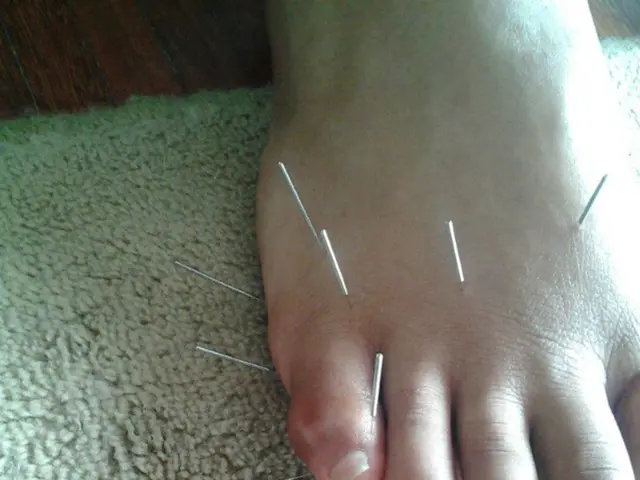Discovered Connection Between Vitamin D and Birth Control
Hey there! Let's delve into the intriguing link between estrogen-based birth control and vitamin D levels.
First off, you need to know that vitamin D's primary role is maintaining the right amount of calcium and phosphorus in the blood, and it helps the body absorb calcium, a crucial component of bones. These essential nutrients are primarily found in foods like fish and eggs, but approximately 90% of vitamin D is produced naturally in the skin due to sun exposure.
What's mind-boggling is that researchers discovered that women taking estrogen-based birth control pills contain higher quantities of circulating vitamin D. On the flip side, women who stop taking these contraceptives might experience a dramatic drop in their vitamin D levels.
"Our study found that women using contraception containing estrogen tended to have higher vitamin D levels than other women," said Dr. Quaker E. Harmon. After considering confounding factors like seasonal exposure to light, the effect remained significant. The question on everyone's mind is, why is this happening?
Well, Dr. Harmon says, "We do not know why vitamin D levels are higher. Other work suggests that the levels of other vitamin D metabolites are changed when women use estrogen-containing contraception. This suggests that there may be alterations in the metabolism of vitamin D."
It's fascinating, ain't it? But it's essential to bear in mind that as a woman plans to start trying to conceive or becomes pregnant, it's a good idea to take steps to ensure adequate vitamin D levels. It's worth noting that during pregnancy, the active form of vitamin D supporting the growth of the fetal skeleton increases, which places pregnant women at higher risk of vitamin D deficiency and related bone issues.
Now, here's a heads-up for you ladies. Estrogen-based oral contraceptives, patches, or rings have been associated with 20 percent higher levels of vitamin D. This means that after stopping these contraceptives, a potential vitamin D deficiency could crop up, so it's essential to keep an eye on your levels.
This study focused solely on African-American women, but rest assured that the same association has been observed in other ethnicities too. In the United States, African-American women are more likely to be vitamin D-deficient, so even small changes or decreases in their vitamin D concentrations might be an issue.
So yeah, there you have it! Stay tuned for more updates on this fascinating relationship between estrogen-based contraceptives and vitamin D levels. Cheers!
Remember, this information is intended to be educational and does not replace professional medical advice. Talk to your healthcare provider for personalized guidance.
Fancy some trivia?
- Estrogen's Role in Bone Health: During pregnancy, estrogen promotes bone health, enhancing bone mineral density, crucial for fetal development.
- Vitamin D and Cancer Risk: Higher vitamin D levels have been associated with lower cancer risk, notably colorectal, breast, and prostate cancers[1].
- Estrogen-based birth control can lead to higher levels of vitamin D in women.
- A drop in vitamin D levels may occur in women who stop taking estrogen-based contraceptives.
- Researchers found that women on estrogen-containing contraception have higher vitamin D levels.
- Pregnant women are at a higher risk of vitamin D deficiency due to increased demand for the active form of vitamin D.
- It's crucial for women to maintain adequate vitamin D levels before trying to conceive or during pregnancy.
- Estrogen-based contraceptives such as pills, patches, and rings can increase vitamin D levels by up to 20%.







